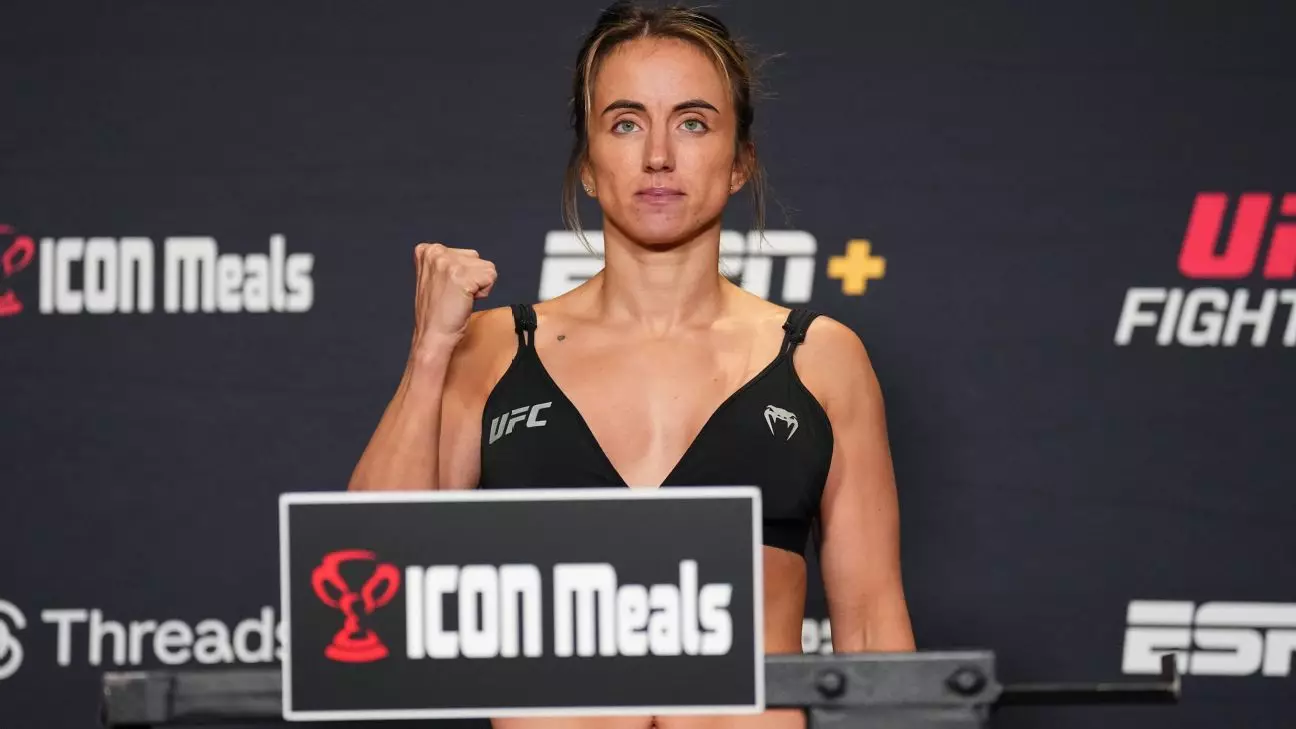The world of Mixed Martial Arts often thrives on adrenaline-fueled excitement, with fans glued to the edge of their seats. However, the recent UFC Fight Night event in Las Vegas serves as a poignant reminder of the unpredictable nature of sports, where even the most anticipated matches can come to an abrupt halt. Maycee Barber and Erin Blanchfield were slated to engage in a highly anticipated women’s flyweight bout, but the cancellation of the main event just moments before fight time left fans reeling and analysts questioning the implications of such medical hiccups.
The Fragile Nature of Readiness
Maycee Barber’s journey leading up to the fight wasn’t merely a narrative of perseverance but a testament to the rigorous demands placed on professional fighters. Having not competed for over a year due to significant injuries and an illness that resulted in an eleven-day hospitalization, Barber’s return was fraught with challenges. Her failure to make weight further complicated the situation, illustrating the extreme pressures athletes face to perform at their peak, even when health issues loom large. Such obstacles beg the question: Should athletes be compelled to fight at all if they are not in optimal condition? The UFC’s decision to allow Barber to step onto the scale appeared cavalier given her medical history and the daily toll of competitive fighting.
Blanchfield’s Frustration and Future
For Erin Blanchfield, the cancellation must have felt like a cruel twist of fate. Just moments away from stepping into the Octagon, she was left in disbelief when UFC executives delivered the grim news. The unexpected upheaval disrupted not only her fight night preparations but also her training focus and career trajectory. Blanchfield, now sitting at No. 4 in the women’s bantamweight rankings, openly declared her disinterest in rescheduling the match against Barber. This perspective sheds light on an often overlooked dynamic in professional sports: the competitive psyche that drives athletes to seek only the most challenging contenders. Her desire to “keep working my way toward the title” reflects an intense ambition but also raises eyebrows regarding the etiquette of professional matchmaking within the organization.
The Bigger Picture
The fallout from this event transcends the immediate disappointment of fight cancellations. It raises important discussions about athlete safety, the burden of expectations placed on fighters, and how organizations like the UFC manage these high-stakes encounters. As athletes continue to push the boundaries of physical endurance, it is critical that their health remains a paramount concern. The UFC must navigate these complex narratives carefully, ensuring that both fighters and fans understand the importance of prioritizing well-being over spectacle. The ultimate goal should never lose sight of the very human elements behind the ferocious persona seen in the cage.
In a sport defined by precision, speed, and strength, the card cancellations are stark reminders not just of the fragility of the human body, but the unpredictability that keeps fans captivated—and often frustrated—week after week.

